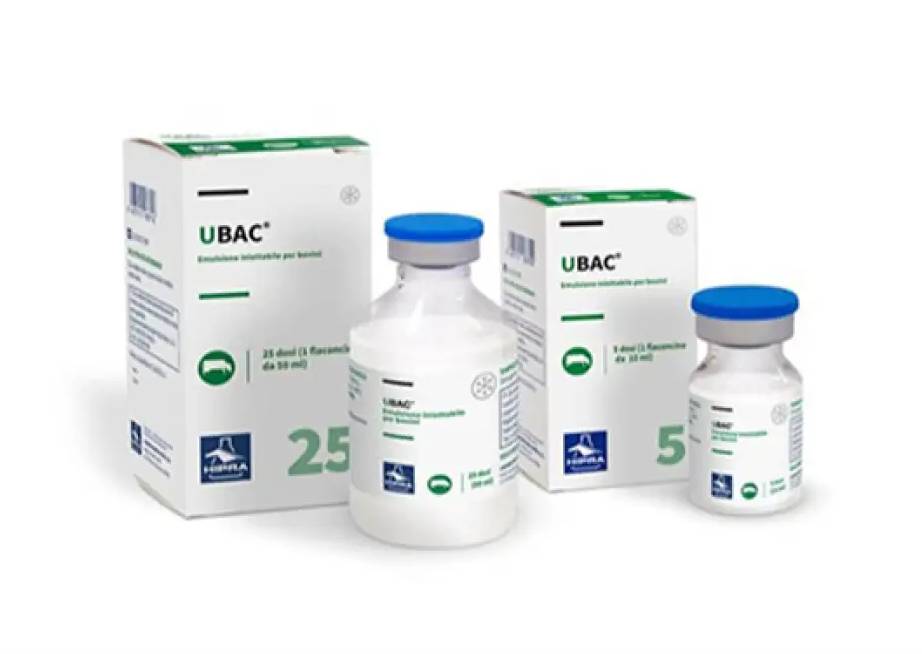
Packaging
10 mL vial (5 doses)
50 mL vial (25 doses)
UBAC is New Zealand’s second mastitis vaccine (after our other mastitis vaccine, Startvac), aiding in the prevention of clinical mastitis caused by gram-positive bacteria. It specifically targets Streptococcus uberis, reducing infection rates and severity, thus helping improve udder health, milk quality and overall herd productivity.
UBAC should be considered as a component of a comprehensive mastitis management programme alongother critical practices - e.g., nutrition, hygiene, dry-off, and milking practices.
Active ingredients include:
Lipoteichoic acid (LTA) from Biofilm Adhesion Component (BAC) of Streptococcus uberis, strain 5616 ≥ 1 RPU* (Relative Potency Units – ELISA).
HIPRAMUNE U as an adjuvant.
2mL deep intramuscular injection into the anterior neck muscles according to the following schedule:
1st injection: 4 weeks prior to drying off.
2nd injection: At drying off.
3rd injection: Approximately 2 weeks post-calving.
Repeat the full immunisation programme with each gestation for continued protection.
Important note: Store refrigerated (2°C-8°C) and protect from light. Do not freeze. Use within 10 hours of opening. Vaccinate only healthy animals. Keep out of reach of children.
HIPRA is a global leader in preventive animal health, offering innovative vaccines and diagnostics, with over 50 years of experience and a presence in 100+ countries. Visit hipra.com to learn more.
UBAC® contains lipoteichoic acid (LTA) from the biofilm adhesion component of S. uberis strain 5616. This component stimulates the cow's immune system to produce antibodies, enhancing the animal's ability to fight off infections caused by this pathogen.
Immunity begins to develop approximately 36 days after the second dose and lasts for about the first 5 months of lactation.
Studies have shown that the simultaneous administration of UBAC® and STARTVAC® does not induce adverse reactions beyond those specified in the product characteristics.
Field studies have demonstrated that UBAC® vaccination can reduce the incidence of new cases of S. uberis clinical mastitis by up to 50%. Additionally, vaccinated cows that did become infected responded to treatment more quickly, resulting in reduced antibiotic usage.